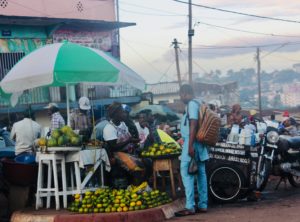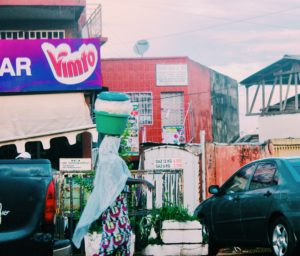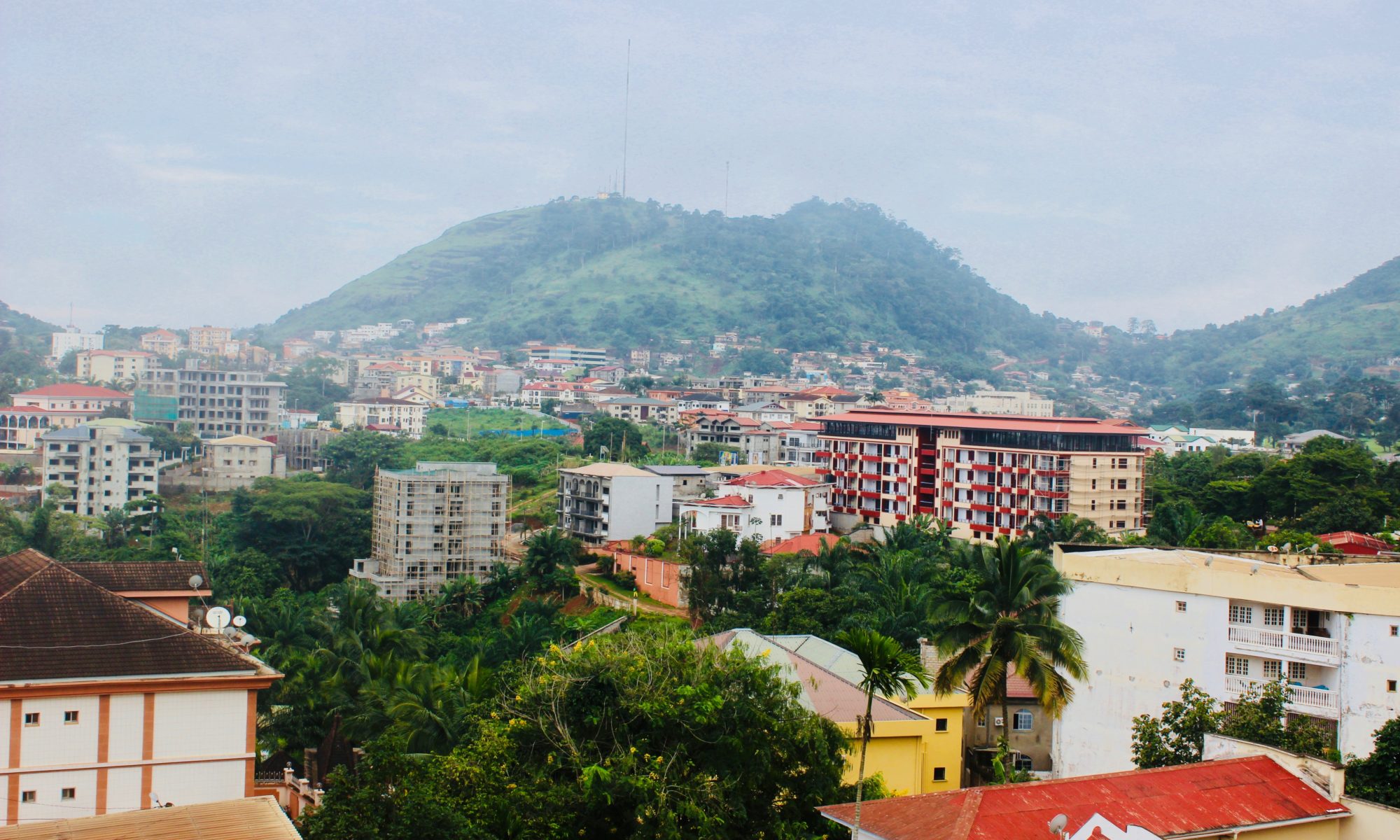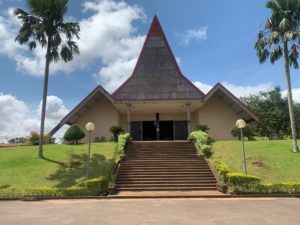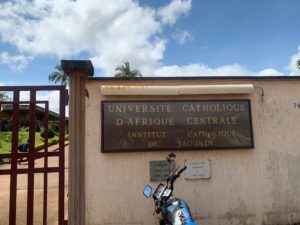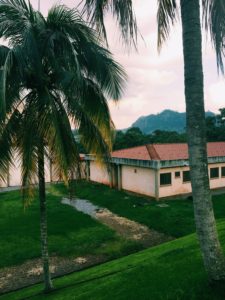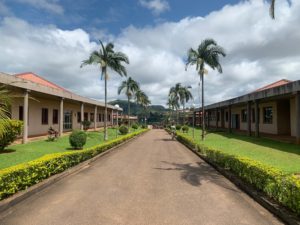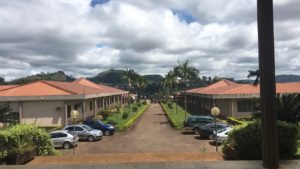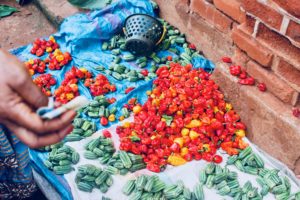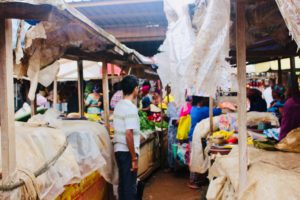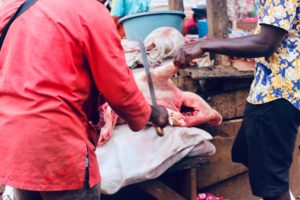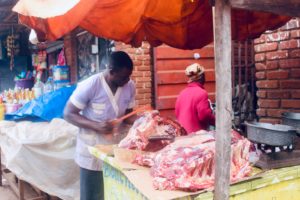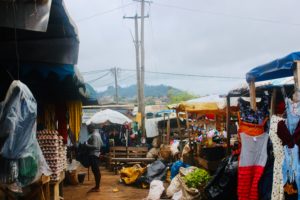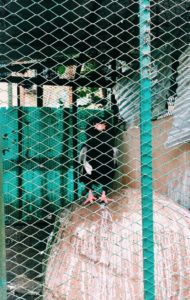Over the course of the Cameroonian Literature class I have been taking through the Middlebury Program, I’ve had the opportunity to read so many works of fiction and non-fiction, all written by Cameroonian writers. One of the writers that made an impression on me was Mongo Beti. Beti was an author who grew up in a tiny rural village about an hour outside of Yaoundé. He grew up as many people do here, without electricity or clean water and without being surrounded by educated individuals. Nevertheless, Beti attended school and eventually moved to France to study at the Sorbonne and to become a teacher. He wrote his first novel when he was just 20 years old. He lived in exile for most of his life, before being convinced to come back to Cameroon by his good friend, Professor Ambroise Kom. Some of you reading this blog might recognize Professor Kom’s name. He taught at Holy Cross and headed a study abroad program to Cameroon before moving back here to retire a few years ago. We were invited by Professor Kom, to a debate honoring the late Mongo Beti (he died 18 years ago this year) which would focus on Beti’s view on the current Anglophone Crisis.

The event was supposed to start a 4pm, but in true Cameroonian fashion, it started over an hour late (we’ll call the torrential rain a good excuse). The thing that shocked me the most about the event was how few people were there. Mongo Beti is a hugely famous writer who is known all over the world and who has had his work translated into many languages. But his own people don’t want to remember him because he was considered by many to be an enemy of the state. His views on the Cameroonian government were very radical and threatening to those in power. We met in the back of the Librairie des Peuples Noirs, a bookstore started by Beti which has since been taken over by Professor Kom. To the professor, the bookstore, usually mostly empty, symbolizes all that is wrong with the Cameroonian view of literature and of education. He told us that most people here don’t or can’t read. They don’t care about books or authors and they aren’t interested in broadening their knowledge. This is a sad reality that is being fought day in and day out by members of SAMBE (Société des Amis de Mongo Beti).
The debate was led by three professors, two Francophone, one Anglophone, who discussed their opinions and possible solutions to the Anglophone Crisis that threatens to turn Cameroon into a Civil War-zone. I won’t go into the details of each opinion, but it was interesting to see the different viewpoints of the Anglophone professor and the Francophone professors (they were NOT in agreement). This showed me the complexity of the issue and inspired me to consider my own opinions as to who is at fault and how it can be resolved.
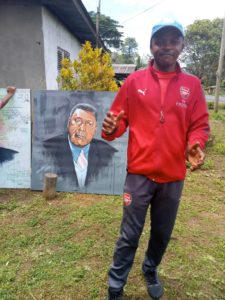
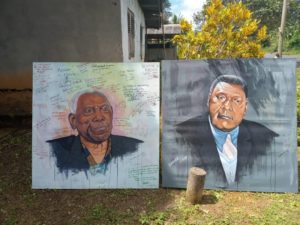
A few days later, we accompanied Professor Kom to Mongo Beti’s village to visit his grave and to attend a ceremony. Upon arrival, the extreme poverty and deprivation of the villagers was clear. The houses were mud buildings full of holes with tall grass and weeds growing around the sites. The people were often outside their houses, sitting in the sun, some were drinking although it was barely 10am. Professor Kom told us the somewhat depressing story of how a successful, wealthy Mongo Beti returned to his village in order to try to help his people escape poverty. He started a bakery, a plantation that grew all different fruits and vegetables and even a pig farm and butcher. However, after his death, it became clear that he was what held his village together. The establishments he had created quickly fell into disrepair and were abandoned by the villagers, who returned to their desperate poverty. The professor explained how this shows the complexity of poverty. People, even if provided with the tools necessary to exit their poverty, don’t always know how to or even want to use them. We were able to visit the plantations which were utterly abandoned and overgrown.
The talk allowed us to see the perspectives of the villagers, who didn’t understand the reason for our gathering. One man, clearly intoxicated, stood up to say that we should be ashamed to come visit the village without bringing food, money and clothes to provide the villagers with. He didn’t understand that we were coming to honor a great writer and that paying to do this wasn’t necessary. For him, if we were coming to the village, we should have brought supplies for everyone there. This is somewhat typical in the villages; the people always want something in return, even if you are only walking through. But as the professor said, this is only a way to keep the villagers in their poverty-stricken lives. Beti tried to provide them with the tools necessary to learn how to climb out of poverty themselves, but they chose not to use them.
It was a sobering visit that showed us how difficult the situation of the poor is in Cameroon. It isn’t enough to provide people with basic necessities on a daily basis, they have to be educated and taught how to obtain these necessities themselves in order to break the cycle of poverty.
